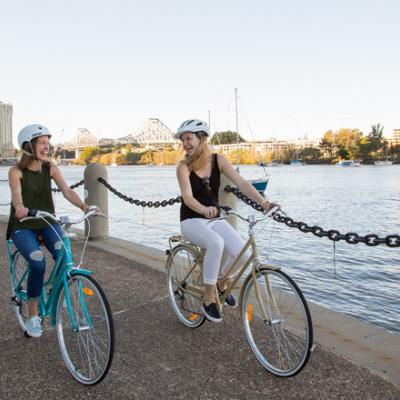Wondering how you’ll afford living expenses while studying? You’re not the only one.
Thankfully, that’s why there are so many tips and tricks out there for maintaining a uni student budget.
We’re here to reduce your money worries so you can enjoy your first semester of university and focus on study.
Here’s how to save money as a student.
Budgeting tips
Budgeting for students at university can be simple if you make use of all the tools and services on offer to help you out financially – from discounts to workshops and government tuition schemes.
1. Make a plan
Get a budget in place early so you’re ready for your first semester. Make sure you factor in large one-off costs like moving house, as well as ongoing costs like rent, utilities and groceries. You may need to do a little research into cost of living in your town or city to get approximate figures to add into your budget.
It’s important to be realistic about how your budget fits with your income (whether this is from work, financial assistance programs like scholarships or government assistance, or an allowance from your parents). Sticking to a budget can be tough, but this will help you to maintain a study/life balance and leave you with a little money for fun events or saving for big-ticket items like a car or a house down the track.
2. Keep track of what you spend
Noting what and how often you buy is always a good idea. If you’re unsure where to start, see first where you spend the most money. For instance, if you can’t live without your morning coffee on campus, simply adapt your budget and pencil it in as a necessity and cut costs elsewhere. It’s about considering your priorities when it comes to expenses and being honest with yourself about what you’re willing to sacrifice, and what you’re not (do you really need 3ply luxury gold-stamped toilet paper?).
Make your budget work for you and adjust accordingly when needed.
3. Use pay-later services wisely
Pay-later services (the ones where you get your item immediately, but pay it back in instalments over a set period of time) can be great when you need to make an unexpected purchase but don’t have the cash on hand. However, it can be all too easy to fall into a cycle of deficit spending when you choose to pay later. Be sure to ask yourself if you need an item before you purchase and scrutinise your budget to ensure you can make the payback instalments on time.
4. Know when your bills are coming up
Unexpected costs can gnaw into your study budget dramatically. Don’t let your bills – phone, internet or otherwise – sneak up on you. Ration a percentage of your income to them each month or know when they’re coming out of your account. For shared bills, be sure to notify your housemates well ahead of time, especially if you’re the one responsible for making the transaction. You could even regulate an account or card for just bills, so you can gradually add to it and you don’t have to scramble together the money at the last minute.
5. Take public transport
Instead of driving every day, utilise the public transport systems around your uni. Taking the bus, train or ferry often costs less than fuel, and it gives you time to decompress before or after class (or catch up on some last-minute readings). Better yet, you don’t have to pay for parking, allowing you to save money for other important things.

UQ Union often holds events for students such as Stress Less Week around exam time, where you can get a free feed.
6. Make the most of student discounts
Arguably one of the best parts of being a student is the discounts. 💁♀️
Online programs like UNiDAYS offer student discounts on a range of different brands and stores to help keep your uni budget under control and the cost of living manageable. You can use these programs to mitigate the cost of food, books and even clothes.
It’s worth asking stores you frequent if they offer student discounts too. Many places from museums to hairdressers and cinemas have discounted prices if you show your student ID.
There are also online groups that sell textbooks second hand on social media or trading post websites.
On campus at UQ St Lucia, Secondhand Texts & Stationery buys and sells used textbooks at a discounted price. After you’ve finished your course, you can trade in your old books and earn back some money.
7. Bring lunch
Tempted by the endless food options on campus?
The cost of dining out adds up fast. You might think ‘oh go on, it’s only $10’, but that can quickly amount to $50 by the end of a full week. In comparison, bringing in food for lunch or snacks for a late-night study session cuts down costs and puts money back into your pocket.
Work and study
How can students make money while at uni? Finding part-time or casual work is one option.
If you’re considering working while you study but don’t know how to budget as a uni student, there are ways to manage your costs with regular income.
Here’s how to make the most of your hard-earned pay cheque.
8. Open a savings account
A sure-fire way to save while working is to have an account dedicated to doing just that. It will accrue interest in its wake, making your hard work an investment. Having dedicated spending and savings accounts can help you better manage what you can spend.
9. Portion your pay
Put a portion of your pay straight into your savings account every payday. Even if it’s only 10% after you factor what you need to pay rent, utilities and food, it’ll grow over time. Slow and steady wins the race, as the saying goes.
Remember that maintaining a healthy study/work balance is critical to your achievement at university. Taking on too many hours at a part-time or casual job can affect your studies, so always be sure to manage your time wisely and explore all your options for financial assistance.
Financial assistance
10. Find out what financial assistance programs you’re eligible for
The Australian government has a range of study and tuition programs to help with living and studying costs. From Austudy to Youth Allowance, if you’re experiencing financial hardship or not earning enough to support the cost of living, Centrelink can help. HECS-HELP and FEE-HELP are also available to cover tuition fees.
UQ offers a range of scholarships too, and you can apply for more than one at a time, if you meet the selection criteria.
Still a little worried about the cost of living and studying at UQ? Student Services and UQ Union run budgeting workshops and one-on-one consultations to help eligible students apply to Centrelink. You can also explore our financial support page for more tips and advice.






